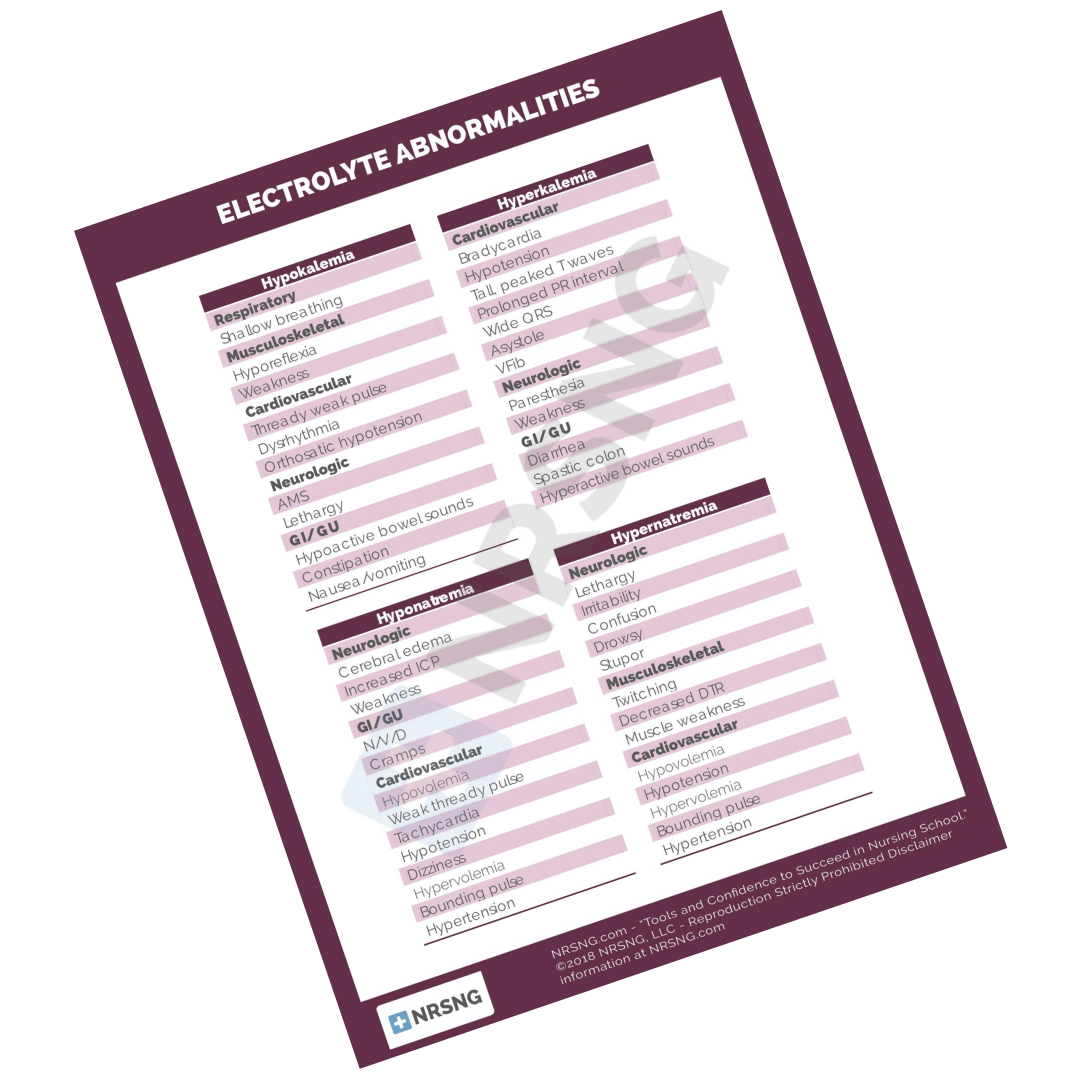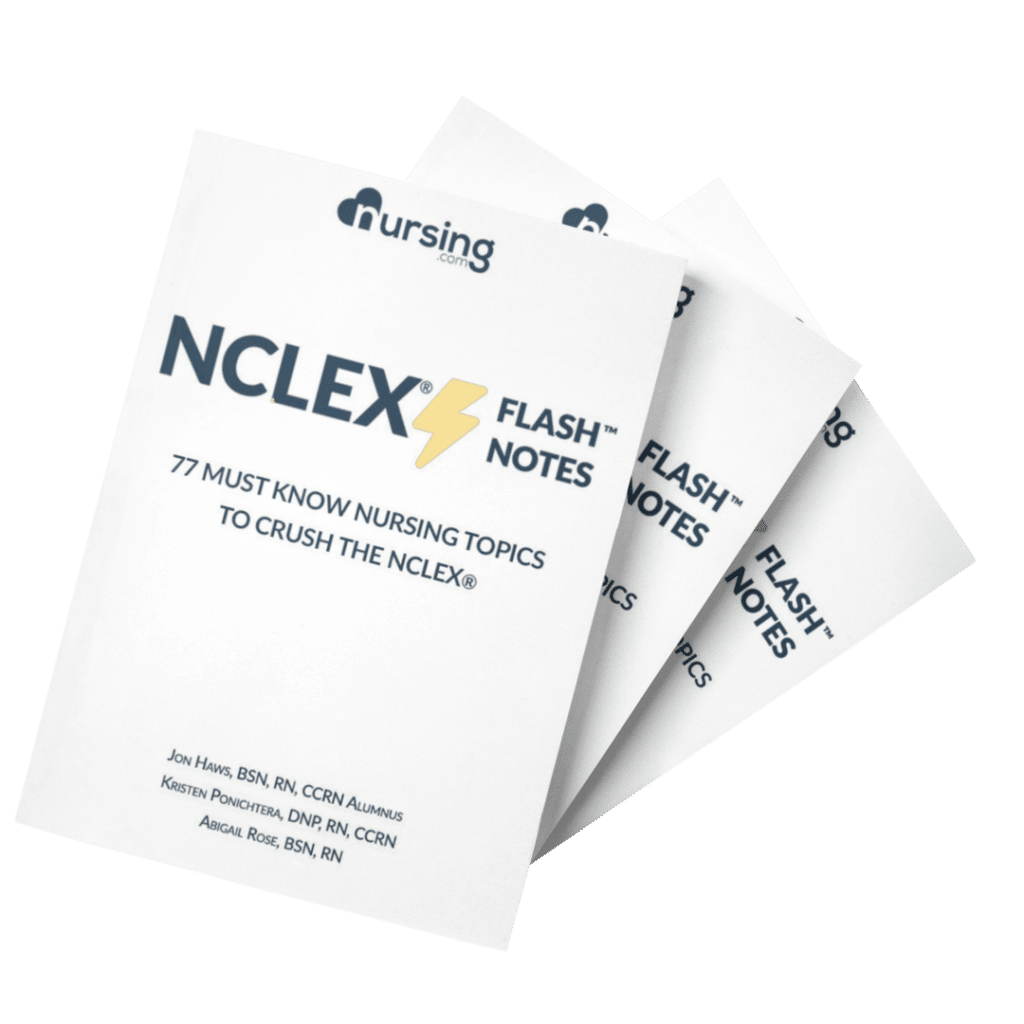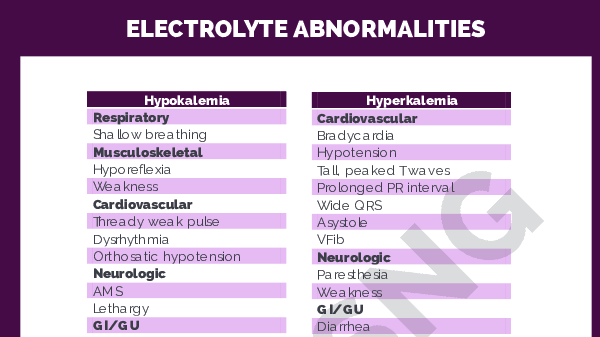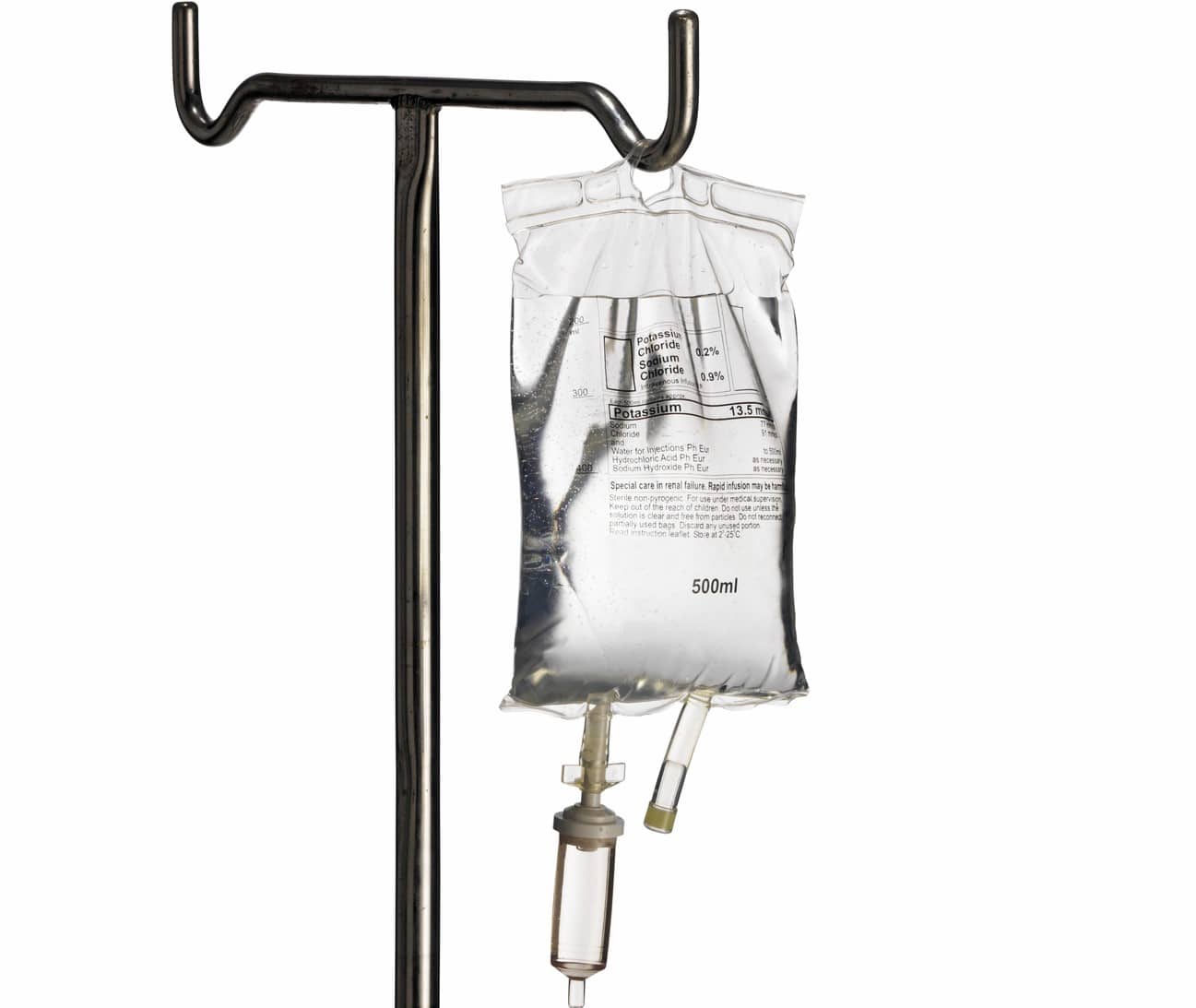
Electrolyte Abnormalities
Add your email below to Create your
FREE Account
![]()
and your free cheatsheet will instantly show up in your Inbox!
Create Your Free Account
Unlock FREE access to nursing videos to pass your tests and improve your grades
Sign up with
Already have an account?
Log in

Create Your Free Account
Unlock FREE access to nursing videos to pass your tests and improve your grades
Sign up with
Already have an account?
Log in






![]()

Create Your Free Account
Unlock FREE access to nursing videos to pass your tests and improve your grades
Sign up with
Already have an account?
Log inWhat Others Say About Learning Electrolyte Abnormalities With NURSING.com
. . . and a few more reviews.


Common Electrolyte Abnormalities

Electrolytes are essential minerals in your body that carry an electric charge and play a crucial role in various physiological processes. The major electrolytes in the body include sodium, potassium, chloride, bicarbonate, calcium, phosphate, and magnesium. Maintaining the right balance of electrolytes is essential for the proper functioning of cells and organs. Electrolyte abnormalities can occur when there is an imbalance in the levels of these minerals.
Here are some common electrolyte abnormalities:
1. Hyponatremia: This occurs when there is a lower-than-normal level of sodium in the blood. It can be caused by excessive fluid intake, certain medications, kidney problems, or conditions that lead to fluid retention.
2. Hypernatremia: This is the opposite of hyponatremia, where there is an elevated level of sodium in the blood. It can result from dehydration, excessive sweating, or certain medical conditions affecting water balance.
3. Hypokalemia: This refers to a lower-than-normal level of potassium in the blood. Causes include inadequate dietary intake, certain medications (like diuretics), excessive loss of potassium through vomiting or diarrhea, and kidney disorders.
4. Hyperkalemia: This is an elevated level of potassium in the blood. It can result from kidney dysfunction, certain medications, trauma or injury leading to cell damage, or disorders affecting the breakdown of red blood cells.
5. Hypochloremia: This is a deficiency of chloride in the blood. It is often associated with conditions causing metabolic alkalosis, such as vomiting.
6. Hyperchloremia: This is an excess of chloride in the blood. It can occur with dehydration, certain kidney disorders, or as a result of specific medical treatments.
7. Hypocalcemia: Low levels of calcium in the blood can be caused by conditions like vitamin D deficiency, hypoparathyroidism, kidney disease, or certain medications.
8. Hypercalcemia: This is an elevated level of calcium in the blood and can be caused by hyperparathyroidism, certain cancers, excessive vitamin D intake, or prolonged immobility.
9. Hypophosphatemia: This refers to a lower-than-normal level of phosphate in the blood. It can result from malnutrition, alcoholism, certain medications, or respiratory alkalosis.
10. Hyperphosphatemia: This is an elevated level of phosphate in the blood and can be associated with kidney dysfunction, hypoparathyroidism, or excessive intake of phosphate-containing substances.
Electrolyte imbalances can lead to a range of symptoms, including muscle cramps, weakness, confusion, and irregular heartbeat, and in severe cases, they can be life-threatening. Treatment depends on the specific electrolyte abnormality and its underlying cause, and it often involves addressing the root cause, adjusting diet, and, in some cases, using medications. Regular monitoring of electrolyte levels is essential for individuals at risk of imbalances. If you suspect an electrolyte abnormality, it’s important to seek medical attention for proper diagnosis and management.
Create Your Free Account
Unlock FREE access to nursing videos to pass your tests and improve your grades
Sign up with
Already have an account?
Log inDon't forget to claim your FREE Cheatsheet

Fluids and electrolytes can be tough.
This cheatsheet will help you keep them straight.
Create Your Free Account
Unlock FREE access to nursing videos to pass your tests and improve your grades
Sign up with
Already have an account?
Log inGet Your Free Copy of "63 NCLEX Labs" Today!
"Would suggest to all nursing students . . . Guaranteed to ease the stress!"
~Jordan

Create Your Free Account
Unlock FREE access to nursing videos to pass your tests and improve your grades
Sign up with
Already have an account?
Log in